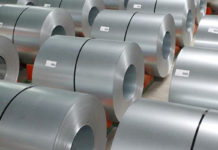In today’s world, where environmental concerns are at the forefront of global conversations, individuals are increasingly seeking ways to minimize their carbon footprint and live more sustainably. While large-scale initiatives and government policies play crucial roles in addressing environmental issues, sustainable living often begins at home. One such initiative that has gained traction in recent years is the establishment of backyard chicken coops.
The Rise of Backyard Chicken Coops
Backyard chicken coops have seen a resurgence in popularity among urban and suburban dwellers alike. Once primarily associated with rural farming communities, raising chickens has become a feasible option for individuals seeking to adopt a more sustainable lifestyle. The reasons behind this trend are manifold.
1. Food Security
In an era of uncertainty surrounding food systems and supply chains, many people are turning to backyard farming as a means of enhancing their food security. Raising chickens provides a source of fresh eggs, meat, and fertilizer, reducing reliance on store-bought products that may have traveled long distances and undergone extensive processing.
2. Connection to Nature
For urban and suburban residents, maintaining a backyard chicken coop offers a valuable connection to the natural world. Tending to chickens, observing their behavior, and participating in the cycle of egg production fosters a deeper appreciation for the environment and the role humans play in it.
3. Waste Reduction
Chicken coops can serve as effective waste reduction systems. Chickens are omnivores with voracious appetites, capable of consuming kitchen scraps, garden trimmings, and even certain types of pests. By feeding chickens food scraps that would otherwise end up in landfills, backyard farmers can significantly reduce household waste.
4. Fertilizer Production
Chickens produce nutrient-rich manure that can be used to fertilize gardens and improve soil health. Unlike synthetic fertilizers, which may contain harmful chemicals and contribute to water pollution, chicken manure provides a natural and sustainable alternative for enriching soil fertility.
5. Pest Control
In addition to consuming kitchen scraps, chickens also help control pests such as slugs, snails, and insects. Their foraging behavior reduces the need for chemical pesticides, promoting a more ecologically balanced garden ecosystem.
Environmental Benefits of Backyard Chicken Coops
Beyond the individual advantages for backyard farmers, the widespread adoption of chicken coops can have significant positive impacts on the environment as a whole.
1. Reduced Carbon Emissions
By producing their own eggs and meat locally, backyard chicken keepers decrease the demand for industrially farmed animal products that require transportation over long distances. This reduction in food miles translates to lower carbon emissions associated with the transportation and distribution of goods.
2. Preservation of Biodiversity
Industrial agriculture often relies on monoculture practices that can deplete soil nutrients and harm biodiversity. In contrast, backyard chicken coops encourage small-scale, diversified farming systems that support a wider array of plant and animal species. This promotes ecosystem resilience and helps preserve genetic diversity within local food systems.
3. Water Conservation
Large-scale livestock operations are notorious water guzzlers, consuming vast quantities of freshwater for drinking, cleaning, and irrigation. Backyard chickens, however, require minimal water inputs compared to their commercial counterparts. By keeping a small flock of chickens, individuals can contribute to water conservation efforts in their communities.
4. Land Use Efficiency
Backyard chicken coops make efficient use of limited urban and suburban space. By converting small patches of lawn or unused backyard areas into productive food systems, individuals can maximize the productivity of their land without encroaching on natural habitats or green spaces. If you are considering setting up your own backyard coop, exploring chicken coops and runs for sale can offer convenient and efficient options that fit well within smaller urban spaces, ensuring your chickens have the comfort and protection they need.
5. Promotion of Local Economy
Supporting backyard chicken keeping fosters local economic resilience by reducing dependence on imported food products and supporting small-scale agriculture. Money spent on chicken feed and supplies stays within the community, circulating among local businesses and contributing to the vitality of the local economy.
Challenges and Considerations
While the benefits of backyard chicken coops are numerous, there are also challenges and considerations that prospective chicken keepers must take into account.
1. Municipal Regulations
Many cities and towns have regulations governing the keeping of backyard chickens, including restrictions on flock size, coop placement, and noise levels. Before establishing a chicken coop, individuals should familiarize themselves with local ordinances and obtain any necessary permits or approvals.
2. Predators and Pests
Predators such as raccoons, foxes, and birds of prey pose a threat to backyard chickens. Proper coop design and predator-proofing measures are essential for protecting the flock from harm. Additionally, chickens can attract unwanted pests such as rodents, requiring proactive pest management strategies.
3. Time and Commitment
Raising chickens requires a time commitment for daily feeding, cleaning, and maintenance tasks. Individuals considering backyard chicken keeping should be prepared to invest time and effort into caring for their flock, especially during extreme weather conditions or when traveling.
4. Health and Hygiene
Maintaining good hygiene practices is essential for preventing the spread of diseases among chickens and safeguarding human health. Regular cleaning of the coop, proper waste management, and adherence to biosecurity measures can help minimize the risk of illness and ensure the well-being of both birds and humans.
5. Ethical Considerations
While backyard chicken keeping is often touted as a humane alternative to factory farming, ethical considerations still apply. Individuals should prioritize the welfare of their chickens, providing adequate space, nutrition, and veterinary care to ensure their physical and psychological well-being.
Conclusion
In conclusion, backyard chicken coops offer a myriad of benefits for both individuals and the environment. From food security and waste reduction to carbon emissions mitigation and biodiversity preservation, the positive impacts of chicken keeping extend far beyond the boundaries of the backyard. By embracing sustainable practices such as backyard chicken keeping, individuals can play a meaningful role in creating a more resilient and environmentally friendly future for generations to come.













